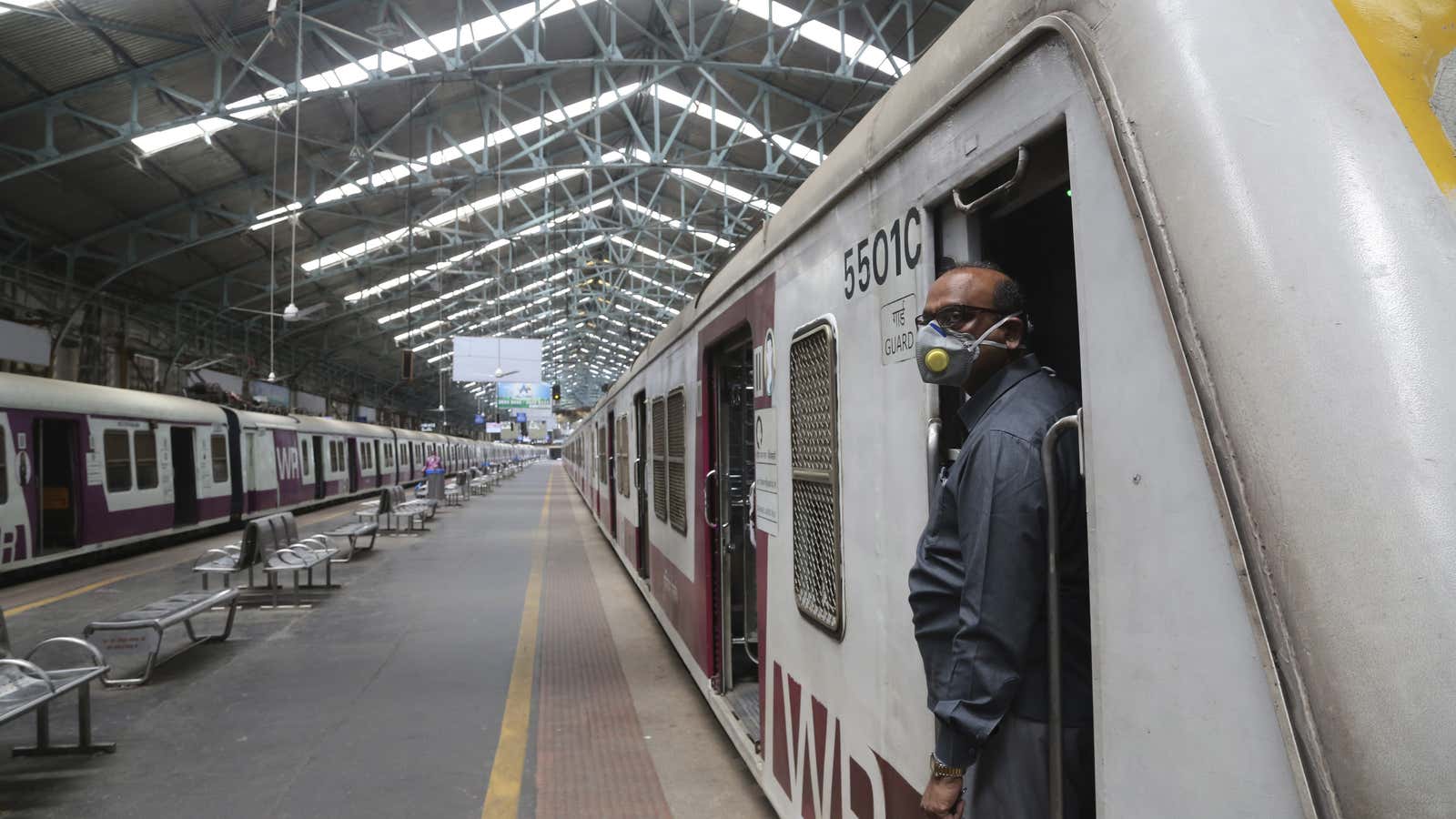India’s showing that it means business when it comes to curbing the spread of coronavirus.
The government has decided on complete lockdown in 75 districts with confirmed coronavirus cases across 22 states, the Indian Council of Medical Research said in a press conference today (March 22).
The announcement came on the day the country observed “Janata curfew,” a self-imposed exercise of stay home between 7am and 9pm, as called for by prime minister Narendra Modi. The official lockdown is a “natural and logical extension” of this curfew, Lav Agarwal, joint secretary in the department of health and family welfare, said at a media briefing today. Many citizens had already suspected this curfew was a dry run for longer shutdowns.
Additionally, the Delhi police today announced the imposition of Section 144 of India’s criminal procedure code, which restricts the unlawful assembly of more than four people in an area.
Maharashtra chief minister Uddhav Thackeray also expanded the scope of Section 144 today, which was earlier imposed in Mumbai-MMR, Pune, and Nagpur, to the entire state.
In another measure, Metro rail services and interstate bus travel have been brought to a halt until March 31. Indian Railways, too, have decided to suspend all passenger trains till March 31. However, trains carrying goods and the ones which have already commenced their journeys before 4am today will continue to run.
The 779.25 million km long network is the lifeline of India’s public transport. In 2018-19, railways carried over 8 billion passengers across the country, as per the Indian railways’ yearbook (pdf) published last year. With a suspension of all passenger trains, a major chunk of the country’s population will not be able to travel and will help in avoiding the unnecessary gathering of people amid the pandemic.
Notably, Railways operates around 9,000 passenger trains and 3,000 mail express services daily.
Essential services that will remain open include:
- Grocery items including vegetables, fruit and milk
- Cooking gas supplies
- Telecom services
- Food home delivery
- E-commerce
- Banks/ATM services
- Hospitals and pharmacies
- Availability of transport in essential needs
“N95 respiratory and surgical masks and personal-protection equipment have been provided to states as and when they need; states were asked to procure sufficient quantities of these,” Agarwal said.
What India’s doing
So far, India has reported more than 341 positive cases of Covid-19, a disease that originated in China’s Wuhan and is by now wreaking havoc as a global pandemic.
India has faced brickbats for not testing enough despite the emphasis laid by the World Health Organisation. As of mid-March, the country was testing less than 10 samples per million people.
However, authorities say such criticism is unwarranted. India has already completed over 15,000 tests and the nation has the capacity to do 10,000 tests a day, ICMR director-general, Balram Bhargava, said in New Delhi today while addressing the media. “This means we can do between 60,000 and 70,000 tests in a week in India.”
This is how the country stacks up compared to the rest of the world, according to Bhargava:
- France: 10,000 tests per week
- UK: 16,000 tests per week
- US: 26,000 tests per week
- Germany: 42,000 tests per week
- Italy: 52,000 tests per week
- South Korea: 80,000 tests per week
The number of government-run National Institute of Virology (NIV) labs have been ramped up from one to 111. Moreover, private labs with a network of thousands of collection centres are stepping up, too. Almost 60 of them have sought permission and the government is swiftly approving them, Bhargava reassured. Including the private players, the daily testing strength could exceed 70,000, he said.
The country is now testing anyone with symptoms, as opposed to only travellers and people they associate with. However, “indiscriminate testing is not to be done if anyone comes from abroad. We’re stressing on isolation, isolation, isolation,” said Bhargava. “Don’t test until you have symptoms.”
